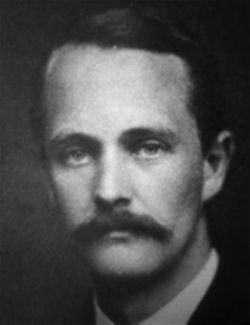The Text is from Allan Ramsay's Tea-Table Miscellany (1763). It was not included in the first edition (1724-1727), nor until the ninth edition in 1740, when to the original three volumes there was added a fourth, in which this ballad appeared. There is also a Scotch version, Sir John Grehme and Barbara Allan. Percy printed both in the Reliques, vol. iii.
The Story of Barbara Allan's scorn of her lover and subsequent regret has always been popular. Pepys records of Mrs. Knipp, 'In perfect pleasure I was to hear her sing, and especially her little Scotch song of Barbary Allen' (January 2, 1665-6). Goldsmith's words are equally well known: 'The music of the finest singer is dissonance to what I felt when an old dairymaid sung me into tears with Johnny Armstrong's Last Goodnight, or The Cruelty of Barbara Allen.' The tune is excessively popular: it is given in Chappell's English Song and Ballad Music.
BARBARA ALLAN
1.
It was in and about the Martinmas time,
When the green leaves were afalling,
That Sir John Græme, in the West Country,
Fell in love with Barbara Allan.
2.
He sent his men down through the town,
To the place where she was dwelling;
'O haste and come to my master dear,
Gin ye be Barbara Allan.'
3.
O hooly, hooly rose she up,
To the place where he was lying,
And when she drew the curtain by,
'Young man, I think you're dying.'
4.
'O it's I am sick, and very, very sick,
And 't is a' for Barbara Allan.'
'O the better for me ye 's never be,
Tho' your heart's blood were aspilling.'
5.
'O dinna ye mind, young man,' said she,
'When ye was in the tavern a drinking,
That ye made the healths gae round and round,
And slighted Barbara Allan?'
6.
He turn'd his face unto the wall,
And death was with him dealing;
'Adieu, adieu, my dear friends all,
And be kind to Barbara Allan.'
7.
And slowly, slowly raise she up,
And slowly, slowly left him,
And sighing, said, she coud not stay,
Since death of life had reft him.
8.
She had not gane a mile but twa,
When she heard the dead-bell ringing,
And every jow that the dead-bell geid,
It cry'd, 'Woe to Barbara Allan!'
9.
'O mother, mother, make my bed,
O make it saft and narrow!
Since my love died for me to-day,
I'll die for him to-morrow.'
Barbara Allan
Frank Sidgwick
Suggested Poems
Explore a curated selection of verses that share themes, styles, and emotional resonance with the poem you've just read.
